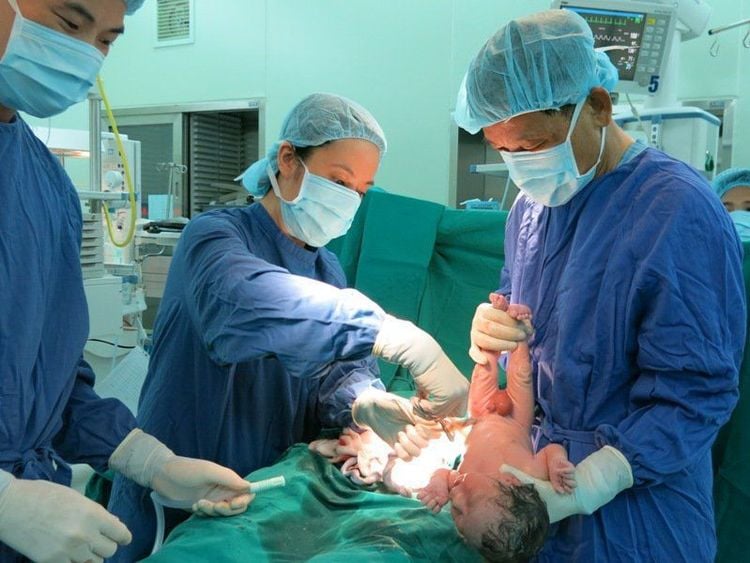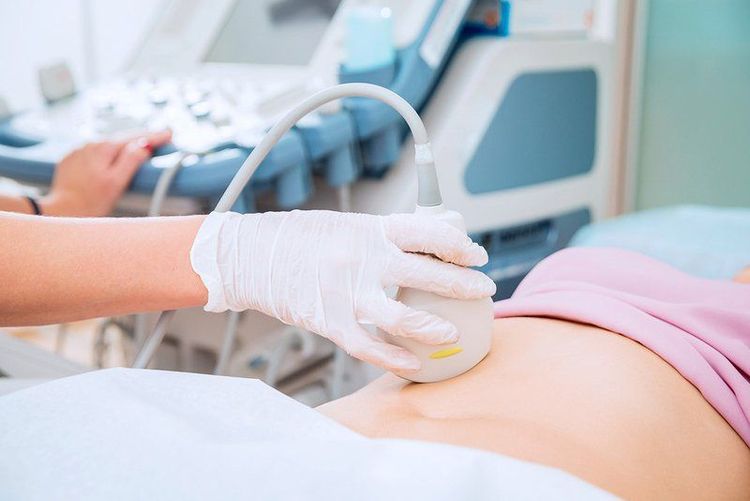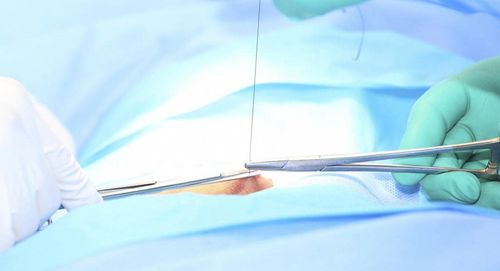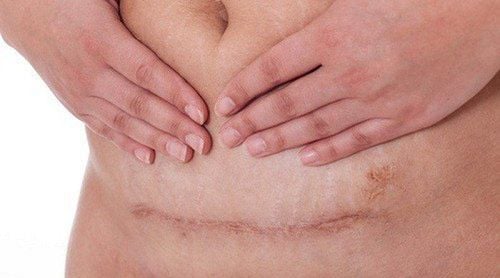This is an automatically translated article.
Cesarean section is the method chosen by many pregnant women to face a painful labor. In addition to the outstanding advantages, this method can also expose the mother to some risks such as an open incision. uterus, cervical adhesions or cesarean section scars that don't heal well, leading to incisional fluid accumulation.
1. What is uterine incision scar collection?
Caesarean section is an indicated method in cases of pregnant women with placenta previa, fetal failure, placenta accreta... However, in recent years, the percentage of women who choose the cesarean section method. pregnancy increases constantly and many of them have problems with uterine incision, cervical adhesion ...

Tỷ lệ sản phụ lựa chọn phương pháp mổ lấy thai tăng lên không ngừng
This is a state of continuous loss of uterine muscle at the site of the cesarean scar and forming an echo triangle in the anterior wall of the uterus, causing fluid accumulation at the old cesarean wound and fluid accumulation in the uterine cavity. . Uterine incision collection is a phenomenon in which a layer of fluid is deposited on the crack in the isthmus of the anterior wall of the uterus where the old cesarean scar is located and causes bleeding and difficulty conceiving in the patient. In some cases, the patient will not see any special signs and is only accidentally detected on gynecological ultrasound.
2. Causes of scar collection of uterine incision
Based on the symptoms and clinical examination on the patient with an open uterine incision leading to the collection of fluid from the uterine incision scar, it is possible to see a number of risk factors for this phenomenon including:
Surgical scar too low in the cervical area Scars from multiple surgeries. Uterus is posteriorly flexed. Prolonged labor time. Cervical opening Due to thin lower segment Due to the suture technique of the doctor
3. Symptoms of uterine incision
The majority of patients with open uterine incision and incisional fluid have no obvious symptoms, in some special cases, the patient may have symptoms such as:
Post-menstrual bleeding Chronic pelvic pain Secondary infertility Pain during intercourse Dysmenorrhea
4. Diagnosis of uterine incision fluid collection by what method?
Because the majority of patients do not show any symptoms when they have a collection of uterine incision fluid, it can only be detected during routine physical examination. Means to help accurately diagnose the phenomenon of uterine incision fluid collection include:
2D, 3D ultrasound techniques or uterine water pump ultrasound to determine the extent of damage. Hysteroscopy CT-VT IRM Laparoscopy

Siêu âm 2D, 3D hoặc siêu âm bơm nước buồng tử cung để xác định mức độ tổn thương
5. Treatment of uterine incision fluid collection
Currently, all treatment methods for open uterine incision and incisional fluid collection are aimed at helping the patient to become pregnant again, remove the fibrous scar and stitch to restore the scar.
Treatment of uterine incision fluid collection is still surgery to help clean the collection of fluid inside the incision, at the same time remove all foreign objects, burn the mucosal surface and abnormal blood vessels, cut Remove the edge of the lesion to thin the edge of the scar.
To limit the collection of uterine incision fluid, the patient can apply prevention methods such as:
Should try to give birth naturally if possible. If there is an indication for a cesarean section or a cesarean section, it is better to have a caesarean section close to the due date without waiting according to the date and time, so it will be better for the wound healing process. Research carefully to be able to choose a reputable medical facility, hospital and a synchronous system of facilities, qualified and experienced doctors. Prenatal screening helps pregnant women detect pregnancy at the old incision for timely intervention. The Department of Fetal Medicine - Vinmec Times City International General Hospital is the first unit in the North to deploy a one-stop prenatal clinic (OSCAR) providing a comprehensive screening package for 12 weeks pregnant women. The clinic gives quick results on the same day of examination and screening.
Faculty of Fetal Medicine has successfully implemented advanced prenatal screening methods, helping to screen for complications for pregnant women; Timely detection and intervention of some abnormalities in the fetus from very early weeks of pregnancy.
Please dial HOTLINE for more information or register for an appointment HERE. Download MyVinmec app to make appointments faster and to manage your bookings easily.













